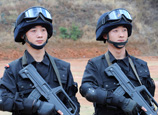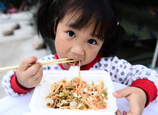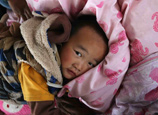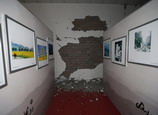
Marrying culture with a bit of commerce is nothing new to bookstores that famously include coffee shops. Many bookstores, including some state-owned Xinhua bookstores now also sell stationery, postcards, magazines and arts and crafts tools. They also sell various beverages and hold cultural events, to which they can sell tickets and where they can sell drinks. Space is also rented out for activities such as lectures.
A successful cultural-commercial model is the Taiwan-based Eslite Bookstore, which opened its first shop in Hong Kong last August and will open its first mainland venue in Suzhou, Jiangsu Province, next year. Planning of opening a Shanghai store is also underway. The stores sell not only books but also DVDs, small electronic devices, wine, chocolate, snacks and other items.
Eslite model
After renovation last year, Shanghai Book City on Fuzhou Road, the largest bookstore in town, adopted the Eslite model. Now half the space is devoted to calligraphy, stationery, paintings, pottery and food.
"In recent years, we have seen that bookstores are part of the cultural mix of commercial capitals," says Yan Bofei, founder of Jifeng Bookstore. "It's a challenge for us to promote the tastes of a bookstore while not failing commercially. The key is to balance the two."
It's a relatively new concept to go the other way around, for a commercial project such as Lifehub@Anting to embrace bookstores and cultural projects, adding some cultural cachet. But it's catching on in China's more developed cities.
Fang Suo Commune drew attention when it opened next to luxury brand Hermes at a high-end commercial complex in Guangzhou, capital of south China's Guangdong Province. The bookstore operator prefers to call it a "cultural platform" rather than a bookstore. It sells books of arts, social science and literature, artworks, coffee and cakes. Exhibitions and lectures are held regularly.
It also has taken commerce to the next level by selling fashion. The main investor in Fang Suo Commune also owns Guangzhou-based Exception de Mixmind, a Chinese brand. It drew attention recently when some of its custom-made outfits and accessories were chosen by China's new first lady Peng Liyuan when she accompanied President Xi Jinping on his official visit to Russia and Africa late last month.


















 Local villagers climb mountains to get relief supplies
Local villagers climb mountains to get relief supplies


![]()
